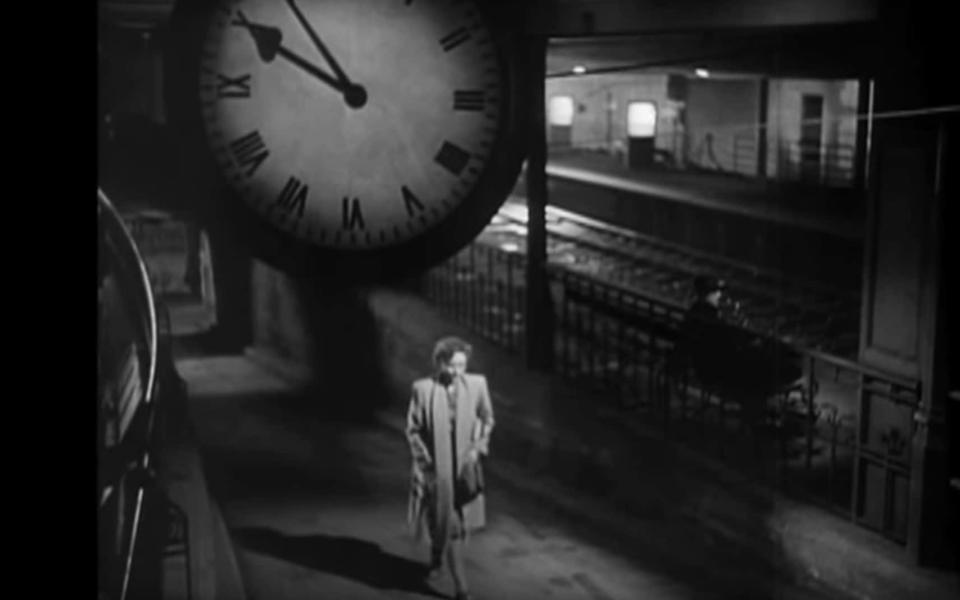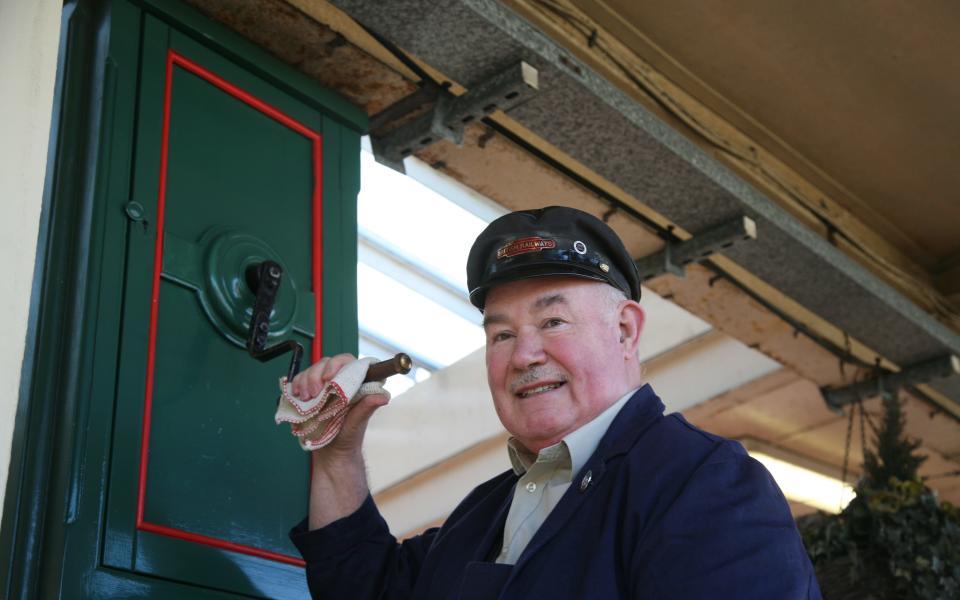Brief Encounter clock stilled by row over 'racist' comments about child migrants
Standing above the station platform where they first met it was the timepiece which, with an iron hand, governed Trevor Howard and Celia Johnson’s short-lived affair and determined when they should part.
But the clock which played such a symbolic role in the 1945 British cinema classic Brief Encounter has been stilled - the victim of a very modern row over allegedly racist comments made by the man who until now kept it working.
Jim Walker has been banned from key parts of the station at Carnforth, in Lancashire, after he was overheard by a member of the public talking about comments about child migrants and refugees.
As a result the clock - which in the film signals when Johnson’s character Laura must leave Alec, played by Howard, and catch the train back to her husband - stands permanently stuck at 9.46.
The row exploded after a family visiting the station last October overheard Mr Walker making what they said were racist comments about child refugees, in response to a column he was reading in a national newspaper.
The article questioned whether the migrants and refugees arriving from Calais were children and whether they were in any real danger.
Peter Crowther, chairman of the Carnforth Station Trust, which runs the heritage centre at the station, told The Telegraph: “A visitor to the station who was with his family complained about insulting and racist comments made by Mr Walker.
“He said that if action wasn’t taken he would report the matter as a hate crime to the police.”
Members of the trust interviewed a number of witnesses about the incident and decided to ban Mr Walker from those parts of the station it operates and rents from Network Rail.
The trust said Mr Walker, who the trust claims refused to attend the meeting at which his fate was decided, has since refused to wind the clock up.
“Mr Walker has been given the right to go into the station to get the tools to maintain the clock without having to go into trust buildings and he is not doing it,” said Mr Crowther. “The clock not being wound up is his personal decision and nothing to do with the trust.”
But Mr Walker, 71, hit back at the ban, saying: “It’s a matter of free speech. I was talking to a friend, discussing a newspaper article which questioned the comparison being made between the Calais migrants and the Jewish kindertransport children who fled to Britain in 1939.
“I said it was a ridiculous comparison because the kindertransport children were being rescued from the jaws of death. I didn’t say anything I’d consider offensive or deserving of what's happened to me.
“No wonder people nowadays are scared to say what they think. They are scared of being labelled racist. Where has the right to free speech gone? It is not as if I was Hitler addressing a rally.”
Mr Walker denies he was invited to attend the trust’ meeting which decided on the ban and also denies that he still has access to the equipment needed to wind the clock up.
“I can’t get to the ladder without going on trust property and even if I could I wouldn’t do it anymore,” he said. “I don’t want to associate with that nest of vipers.”
Whatever the circumstances, Alex and Laura might well have welcomed a similar respite from the relentless tick-tock which brought an end to their fleeting affair.
Although Brief Encounter was set amid the narrow confines of an imagined Home Counties town, the station scenes were shot by director David Lean at Carnforth, where the large clock stood above the subway through which the lovers ran to catch their respective trains.
Mr Walker, a former fireman and engine driver with British Rail, helped install the clock after his friend Peter Yates, the former chairman of Carnforth station trust, tracked it down to a shop in Twickenham, west London, and returned it to the station 13 years ago, as part of the £650,00 project to save the building from dereliction.
But the trust claims relations with Mr Walker have soured in recent years.

 Yahoo News
Yahoo News 


